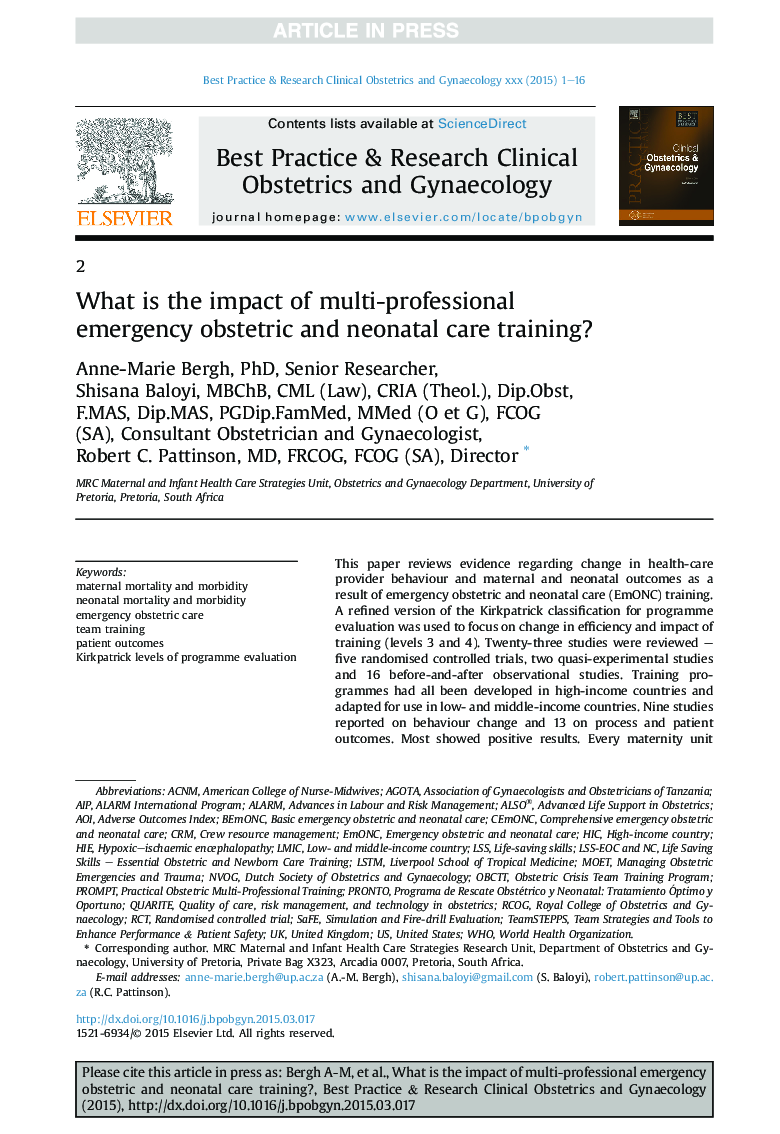| Article ID | Journal | Published Year | Pages | File Type |
|---|---|---|---|---|
| 6169251 | Best Practice & Research Clinical Obstetrics & Gynaecology | 2015 | 16 Pages |
Abstract
This paper reviews evidence regarding change in health-care provider behaviour and maternal and neonatal outcomes as a result of emergency obstetric and neonatal care (EmONC) training. A refined version of the Kirkpatrick classification for programme evaluation was used to focus on change in efficiency and impact of training (levels 3 and 4). Twenty-three studies were reviewed - five randomised controlled trials, two quasi-experimental studies and 16 before-and-after observational studies. Training programmes had all been developed in high-income countries and adapted for use in low- and middle-income countries. Nine studies reported on behaviour change and 13 on process and patient outcomes. Most showed positive results. Every maternity unit should provide EmONC teamwork training, mandatory for all health-care providers. The challenges are as follows: scaling up such training to all institutions, sustaining regular in-service training, integrating training into institutional and health-system patient safety initiatives and 'thinking out of the box' in evaluation research.
Keywords
EmONCLSSAIPHigh-income countryLSTMHIERCTLMICAOICRMTeamSTEPPSRCOGRandomised controlled trialTeam trainingEmergency obstetric careUnited StatesHICMOETSAFEAlarmWorld Health OrganizationpromptCrew resource managementemergency obstetric and neonatal careMaternal mortality and morbidityPatient outcomesUnited Kingdomlow- and middle-income countryWHO
Related Topics
Health Sciences
Medicine and Dentistry
Obstetrics, Gynecology and Women's Health
Authors
Anne-Marie (Senior Researcher), Shisana (Consultant Obstetrician and Gynaecologist), Robert C. (Director),
